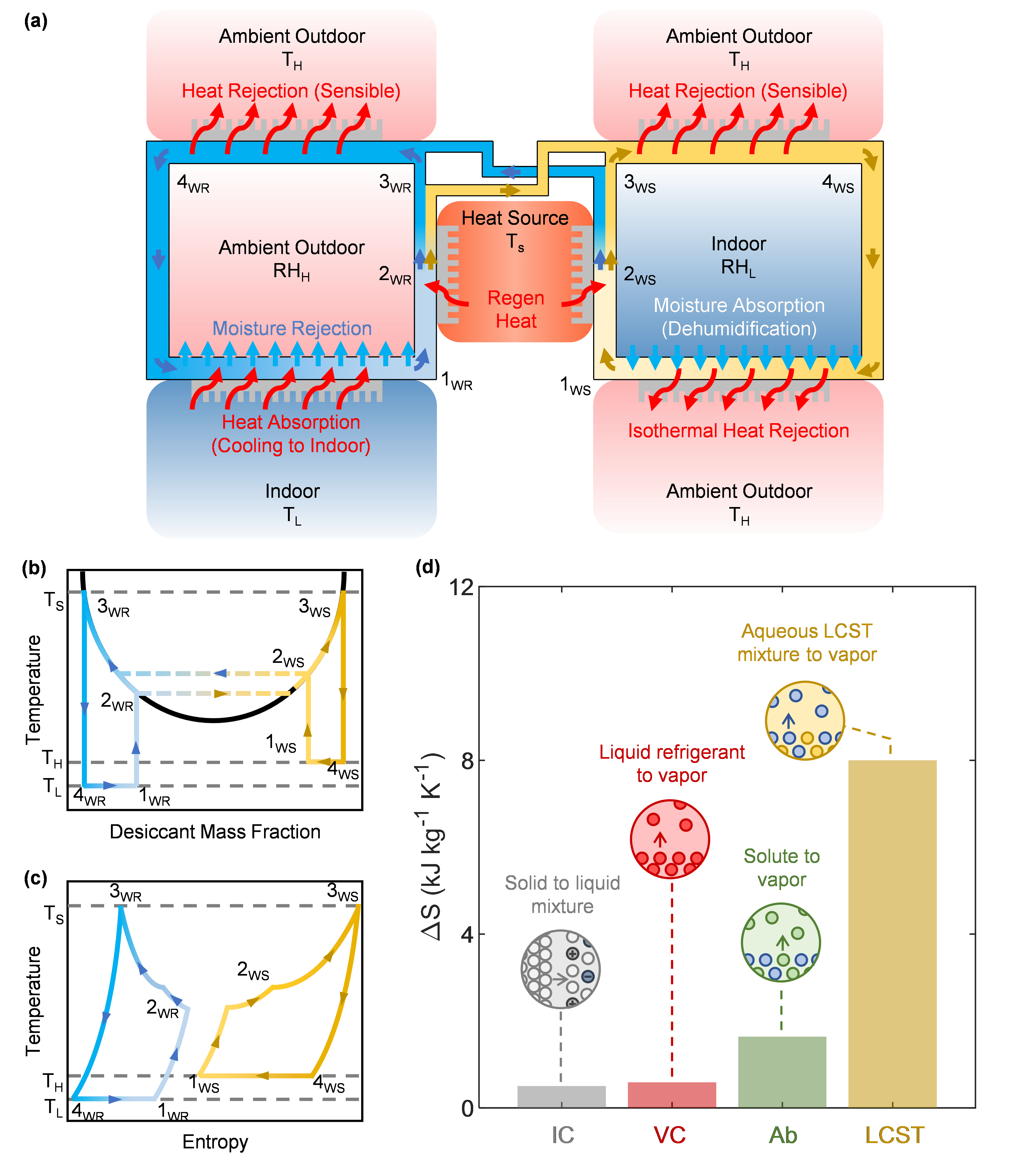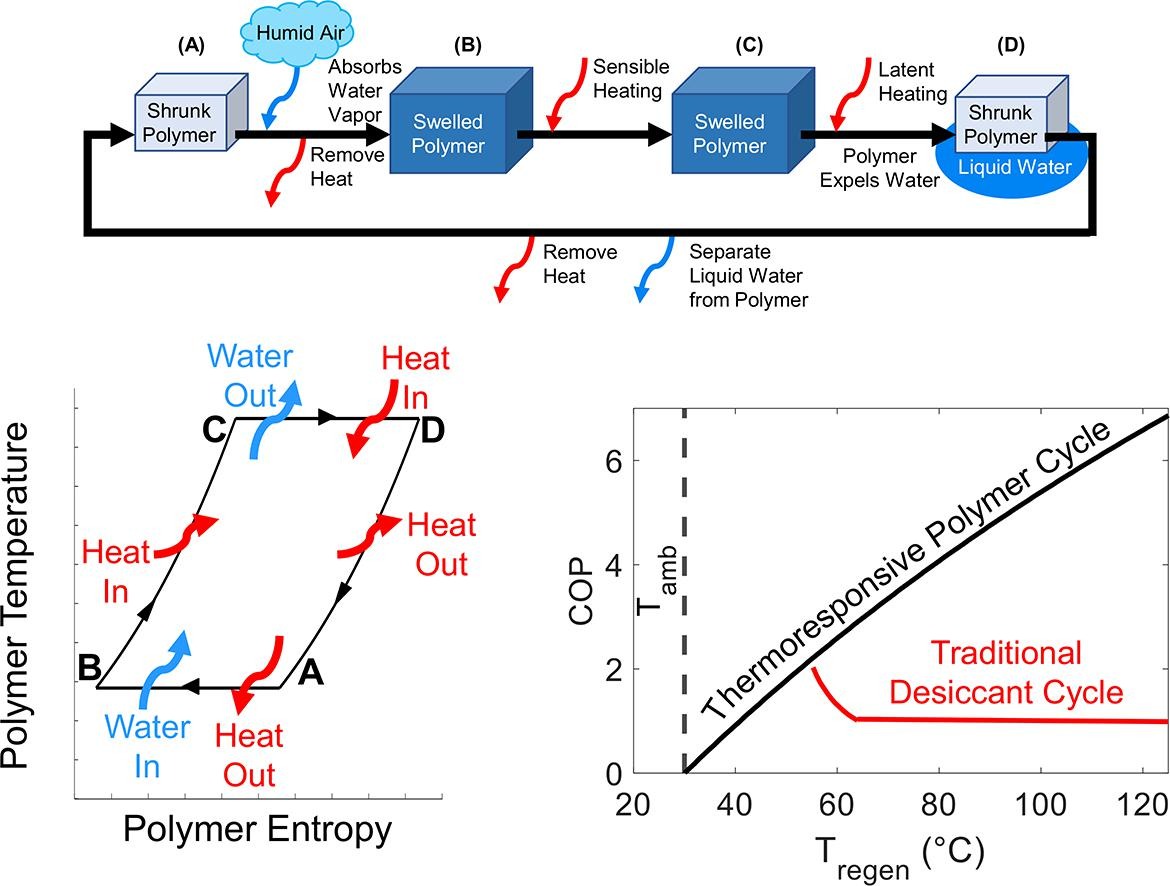Lower Critical Solution Temperature Air Conditioning
My dissertation research involves a new refrigeration and dehumidification cycle that I invented, which utilizes lower critical solution temperature mixtures that phase separate upon heating. The water-scarce (WS) phase absorbs moisture from air, providing dehumidification, while the water-rich (WR) mixtures evaporates, providing refrigeration. My work involves the theoretical analysis, materials characterization, and experimental demonstration of this new cycle. Moving forward, I aim to find new LCST mixtures that allow for lower indoor temperatures and humidities.
Selected Publications:
J. D. Kocher, A. K. Menon, and S. K. Yee; “A Refrigeration and Dehumidification Cycle Using Lower Critical Solution Temperature Mixtures.” (In preparation)
J. D. Kocher, A. Mahfouz, J. G. McDaniel, and A. K. Menon; “Thermodynamic properties of lower critical solution temperature (LCST) mixtures and their application in energy-water systems.” (Submitted to Journal of Materials Chemistry A)
J. D. Kocher, S. K. Yee, and R. Y. Wang; “A first and second law analysis of a thermoresponsive polymer desiccant dehumidification and cooling cycle.” Energy Conversion and Management 253 (February 1, 2022): 115158. https://doi.org/10.1016/j.enconman.2021.115158.
J. D. Kocher, A. K. Menon, and S. K. Yee; “An Air Conditioning Cycle Using Lower Critical Solution Temperature Mixtures.” ASME 2023 Heat Transfer Summer Conference, Washington, D.C. (July 2023). https://dx.doi.org/10.1115/HT2023-107065
Research funded by the Innovation in Buildings Graduate Research Fellowship
The IBUILD Fellowship is made possible by:
- DOE-Building Technology Office (BTO)
- Oak Ridge Institute for Science and Education (ORISE)
- Oak Ridge Associated Universities (ORAU)


